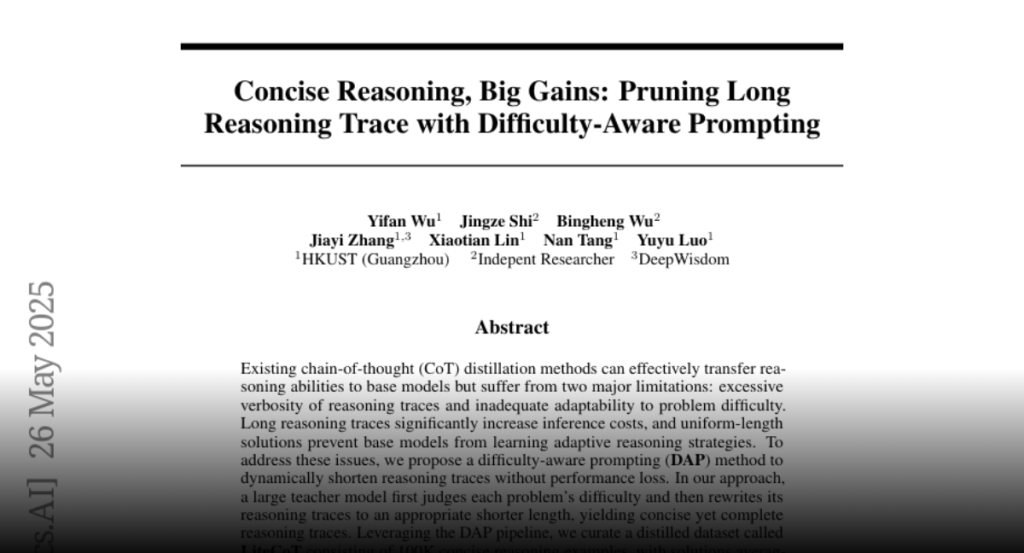The difficulty-aware prompting method shortens reasoning traces in a dataset, improving model performance and efficiency across various benchmarks.
Existing chain-of-thought (CoT) distillation methods can effectively transfer
reasoning abilities to base models but suffer from two major limitations:
excessive verbosity of reasoning traces and inadequate adaptability to problem
difficulty. Long reasoning traces significantly increase inference costs, and
uniform-length solutions prevent base models from learning adaptive reasoning
strategies. To address these issues, we propose a difficulty-aware prompting
(DAP) method to dynamically shorten reasoning traces without performance loss.
In our approach, a large teacher model first judges each problem’s difficulty
and then rewrites its reasoning traces to an appropriate shorter length,
yielding concise yet complete reasoning traces. Leveraging the DAP pipeline, we
curate a distilled dataset called LiteCoT consisting of 100K concise reasoning
examples, with solutions averaging only 720 tokens (an order of magnitude
shorter than typical CoTs). Using LiteCoT, we distilled a new family of
reasoning models called Liter (1.5B, 7B, and 32B) based on the Qwen2.5
architecture. Experiments show that a student model fine-tuned on just 100K of
these difficulty-pruned CoT samples outperforms a model distilled on 800K
original Long CoT samples, while significantly reducing training and inference
costs. Our method also generalizes well: across 11 diverse benchmarks, the
shorter difficulty-aware CoTs achieve equal or better accuracy than Long
chains, using far fewer tokens. For example, on the challenging AIME24 exam,
our approach reaches 74.2% Pass@1 using only about 5K inference tokens,
surpassing other methods that consume many more tokens. Our code and data are
available at https://github.com/Evanwu1125/LiteCoT.

